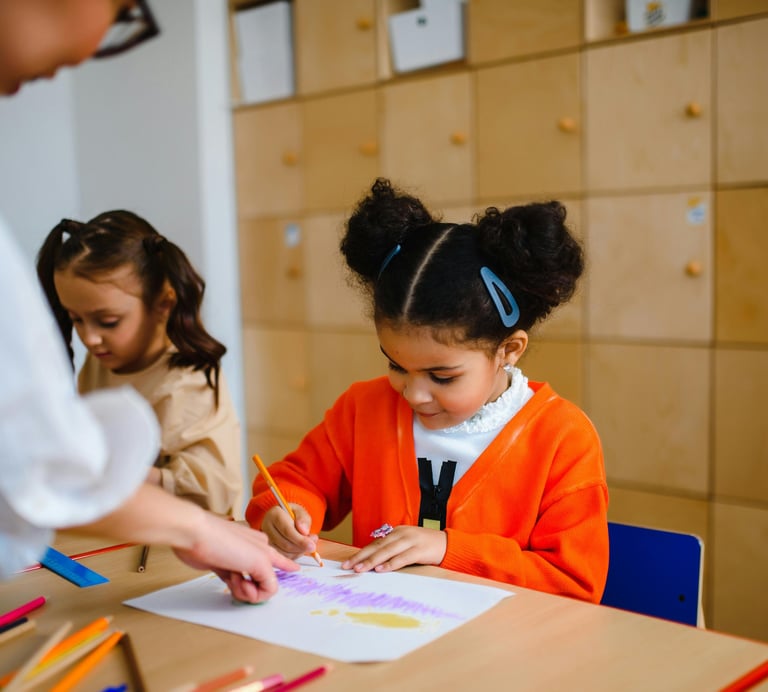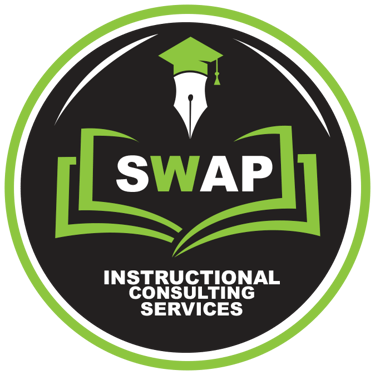Empowering Teachers to Transform Classroom Instruction: The Key to Impactful Learning
Discover how empowering teachers with practical tools and evidence-based strategies can transform classroom instruction and inspire student success. In this blog post, we explore the vital role of professional development, the importance of collaboration, and the power of equipping educators to create dynamic, engaging learning environments. Learn how Instructional SWAP supports teachers in their journey to make a lasting impact on student outcomes. #EmpoweringTeachers #TransformingEducation #StudentSuccess #HomeschoolingSuccess
Dr. Wisteria Williams
1/6/2025


The Key to Impactful Learning: Empowering Educators and Homeschooling Families for Student Success
In today’s evolving educational landscape, impactful learning begins with empowering both classroom educators and homeschooling families. Equipping teachers and parents with evidence-based strategies and practical tools fosters student engagement and achievement. Research underscores the vital role of professional development, collaboration, and instructional innovation in creating dynamic learning environments that cater to diverse educational settings (Darling-Hammond, Hyler, & Gardner, 2017).
The Power of Professional Development
Effective professional development is essential for enhancing teaching efficacy and driving student success—whether in traditional classrooms or homeschool settings. Research demonstrates that sustained, content-focused training significantly improves instructional quality and student learning outcomes (Kraft, Blazar, & Hogan, 2018). Their meta-analysis found that teacher coaching leads to greater improvements in teaching practices than traditional workshops because it provides targeted, ongoing, and individualized support.
These findings reinforce Instructional SWAP’s commitment to providing educators and homeschooling parents with practical, research-based support. By focusing on personalized coaching, collaborative professional learning, and instructional refinement, Instructional SWAP ensures that teachers and homeschool families receive the high-quality development needed to create engaging, student-centered learning environments with lasting academic impact.
Collaboration as a Catalyst for Change
Collaboration fosters shared learning, continuous improvement, and instructional consistency. Research indicates that professional learning communities (PLCs) improve teacher effectiveness and student achievement by promoting reflective practice and collective problem-solving (Voelkel & Chrispeels, 2017). Similarly, homeschooling families benefit from co-ops, support groups, and educational networks that provide opportunities for resource sharing and peer collaboration.
By prioritizing collaboration and instructional excellence, we empower both traditional educators and homeschooling families with the tools, knowledge, and strategies needed to foster meaningful and impactful learning environments.
Equipping Educators for Lasting Impact
Teachers and homeschool parents who have access to high-quality instructional tools and mentorship can implement differentiated, student-centered teaching methods that enhance learning outcomes (Sims & Fletcher-Wood, 2021). By supporting educators and homeschooling families with targeted professional development and collaborative opportunities, Instructional SWAP helps transform classrooms and home learning spaces into engaging environments where all students thrive.
Investing in educator and parent growth means investing in student success. By equipping both teachers and homeschooling families with the right tools and knowledge, we pave the way for a future of impactful, transformative learning—no matter where education takes place.
#EmpoweringEducators #HomeschoolSuccess #TransformingEducation #StudentAchievement
References
Darling-Hammond, L., Hyler, M. E., & Gardner, M. (2017). Effective teacher professional development. Learning Policy Institute.
Kraft, M. A., Blazar, D., & Hogan, D. (2018). The effect of teacher coaching on instruction and achievement: A meta-analysis of the causal evidence. Review of Educational Research, 88(4), 547-588.
Sims, S., & Fletcher-Wood, H. (2021). Identifying the characteristics of effective teacher professional development: A critical review. Education Research Review, 34, 100421.
Voelkel, R. H., & Chrispeels, J. H. (2017). Within-school differences in professional learning community effectiveness: Implications for leadership. Journal of Educational Change, 18(2), 209-233.



